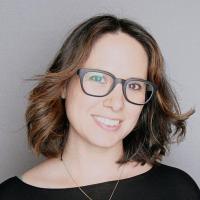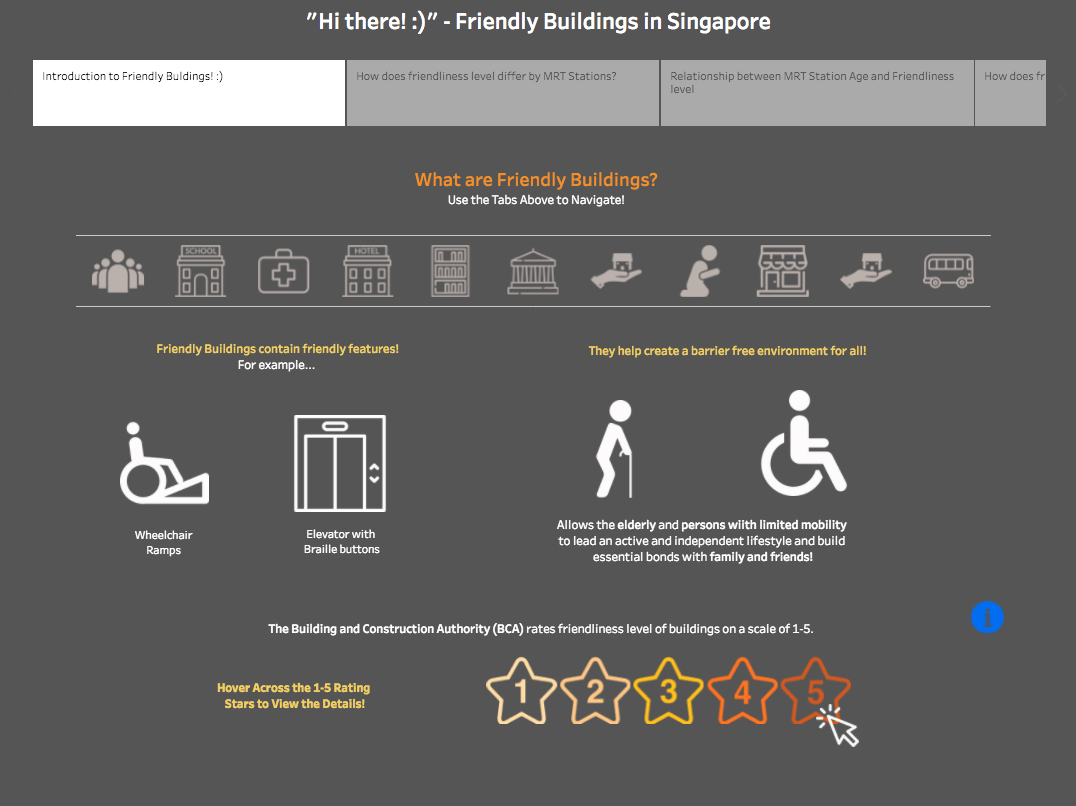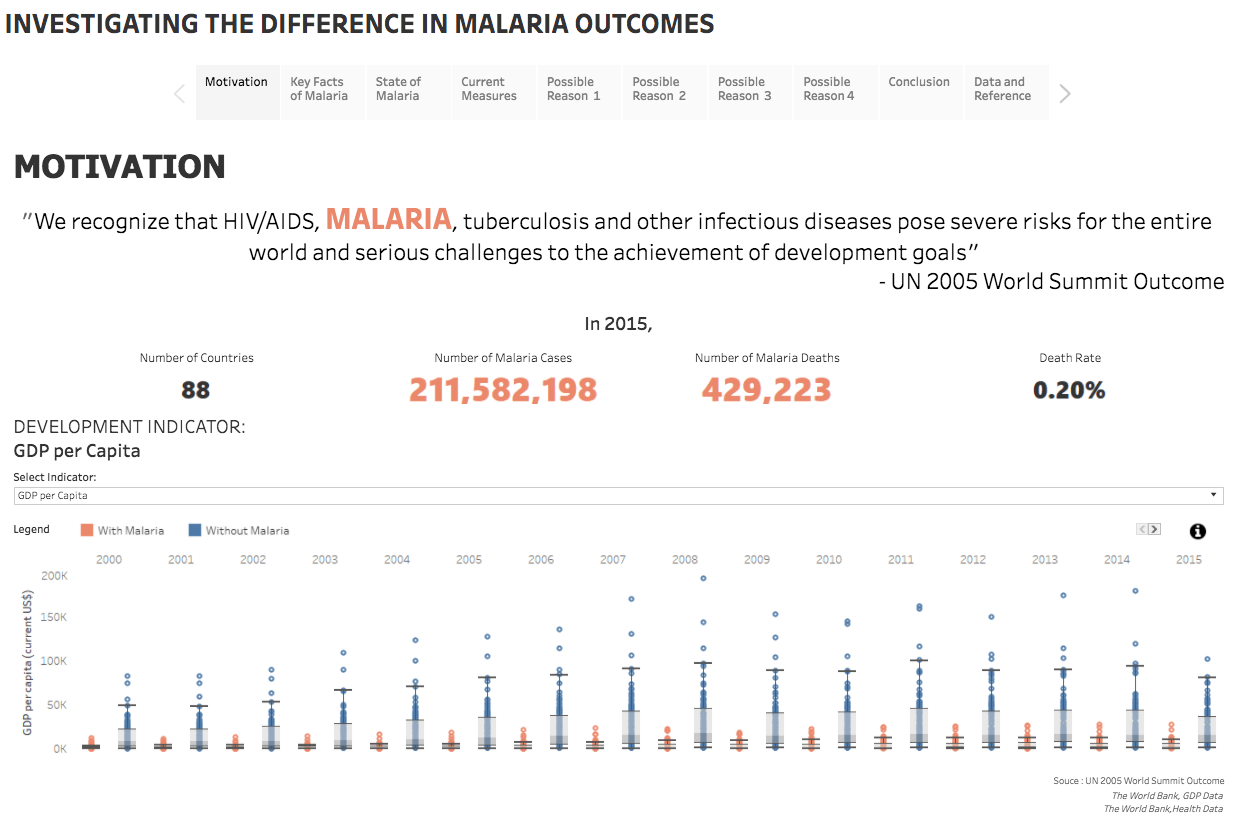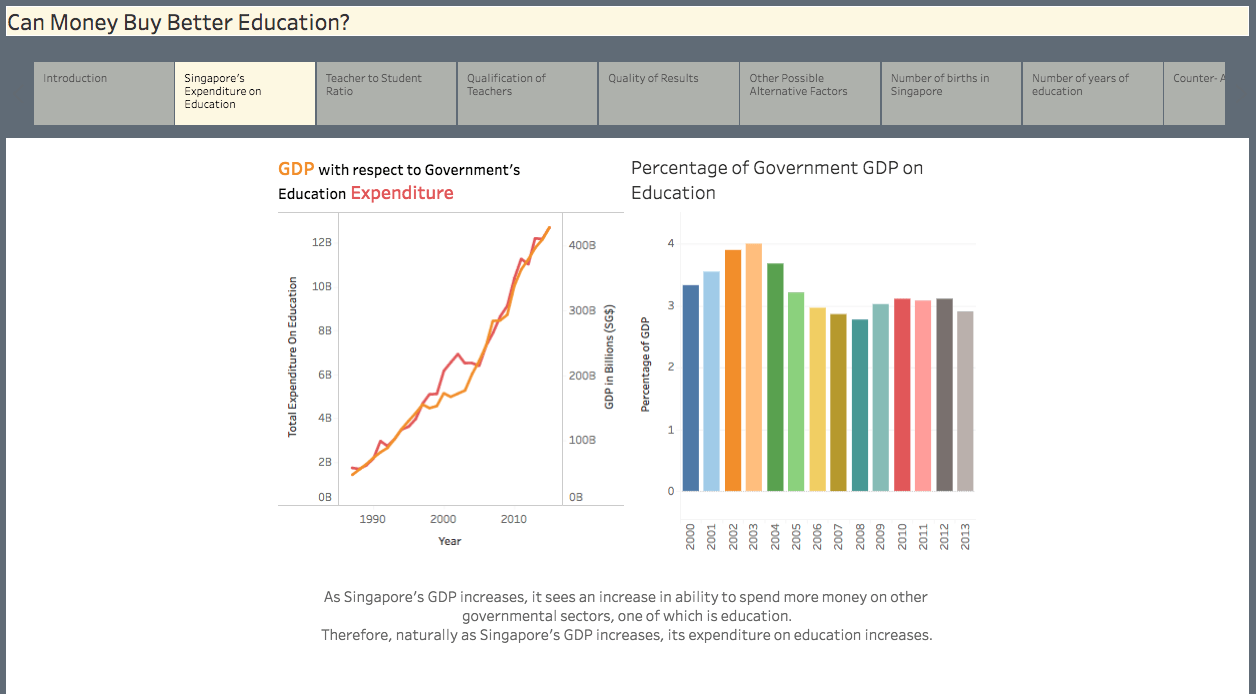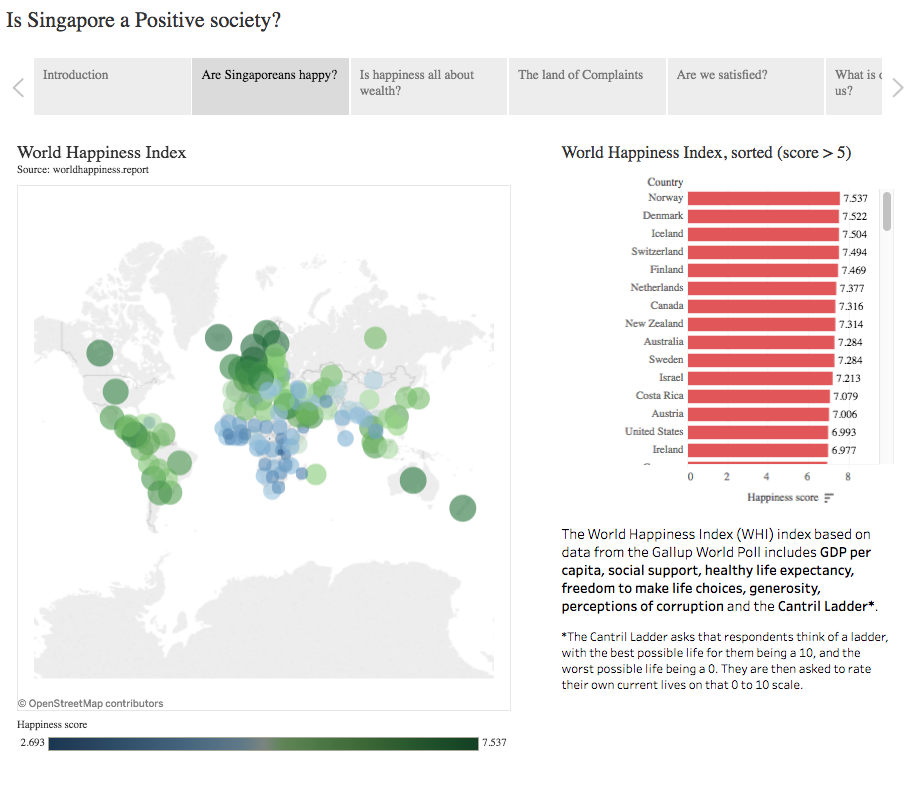Singapore’s next generation of data talent
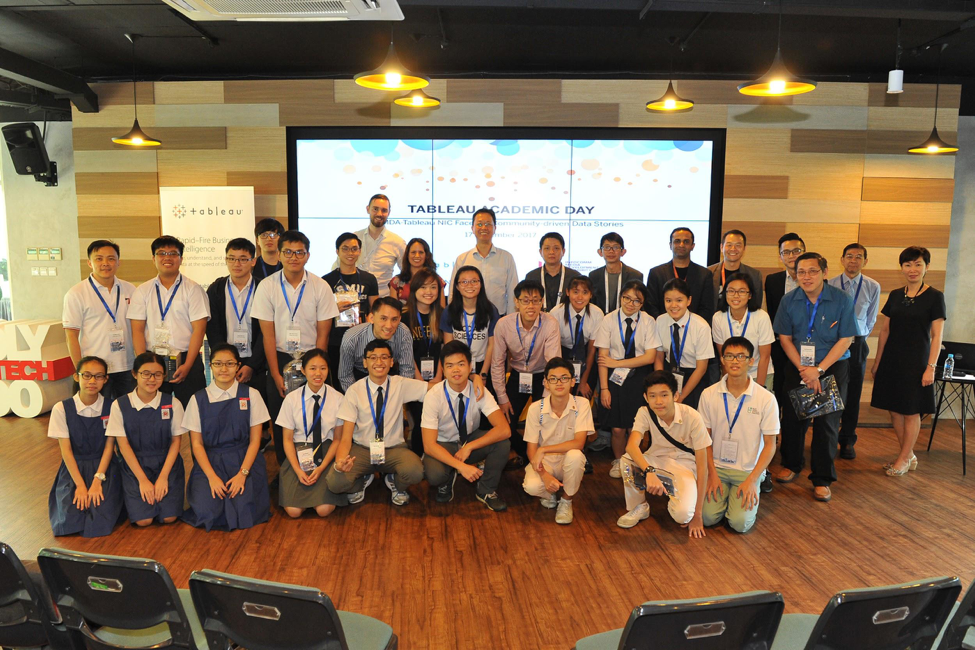
Singapore is Asia Pacific’s hub for business, with the island state leading the way to become the world’s first smart nation centered around technology.
In this country of data rockstars, Tableau partnered with the Infocomm Media Development Authority (IMDA) to host an annual data visualization competition as part of the National Infocomm Competition (NIC) network. As soon as the second-annual competition kicked off in July, students were seeking out public data sets to examine. For months, participants joined local workshops to collaborate with data mentors and test their data storytelling expertise.
But this collaboration goes beyond storytelling. Through their Digital Readiness efforts, IMDA helps empower people to solve real world problems and prepare them with skills for the digital economy. One of the most sought-after skills? Data analytics.
Following the worldwide trend, data analytics professionals are in high demand in Singapore, with over 12,000 analytics jobs currently open across the nation. LinkedIn consistently ranks data analytics jobs among the hottest careers in Singapore and in a report from earlier this year, Forbes ranked Tableau as the third fastest growing technology skill.
At Tableau we are proud to be at the forefront of this wave, helping foster the world’s next generation of data talent. In just 2017, more than 220,000 students and instructors utilized Tableau in the classroom through the Tableau Academic Programs—and over 9,000 of them were based in Singapore.
This all came to life during this year’s competition finals that culminated in a Tableau Academic Day hosted at Ngee Ann Polytechnic.
Educators and students came together to discuss the opportunity in data analytics and Tableau. Tableau Zen Master, David Murphy spoke on how visual analytics can help people efficiently engage with data and discover hidden insights.
Joseph Sung, Head of IT at FJ Benjamin, explored how the industry can partner with students to mine their creativity and bring innovation to companies with data. He shared how interns remade a ten-year-old report into a dynamic visualization that incited more questions and discussion than ever before.
We also heard from Johnson Neo, a lecturer from the School of Business and Accountancy at Ngee Ann Polytechnic, who’s been teaching Tableau since 2012 and has witnessed his students continually raise the bar for analysis and gone on to see immense success in the workplace.
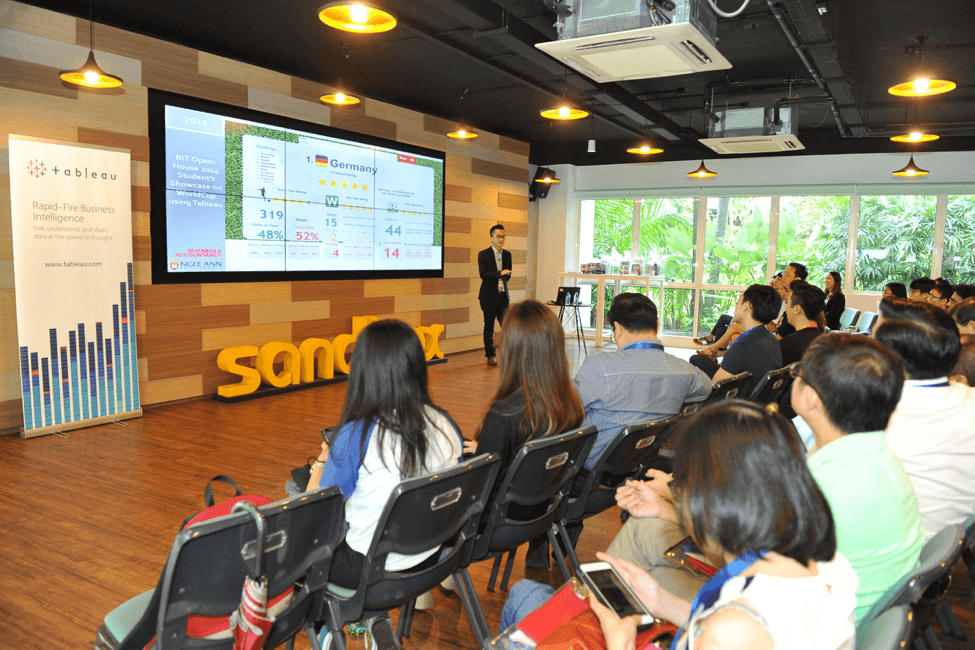
But most of all, we came together to explore and learn from the amazing work the students had created, and of course, to find out the winners! The judges included Irene Tham, top tech reporter from the country’s premier newspaper, The Straits Times and Adrian Lim, Director, Digital Participation & Foresight at IMDA.
They judged ten finalist teams in two categories on the basis of:
- Depth of analysis
- Visual best practices
- Relevance to society
- Best storytelling
- Creativity
And the winners are...
Institute of Higher Learning Category (Polytechnics, Institute of Technical Education and Universities):
Winner:
Fauzi Bin Bajuri from National University of Singapore
Friendliness Standards of Building in Singapore
This student started this analysis with the desire to provide insight for future planning of Singapore as a Smart Nation. Explore this viz and see the current accessibility of train stations, public buildings, and neighborhoods around Singapore.
Runner-up:
Vincent Tan from Singapore Management University
Investigating the Differences in Malaria Outcomes
This viz came out of a desire to understand how different countries combat Malaria to determine possible reasons some countries fared better than the rest in their battle against Malaria.
School Category (Secondary Schools and Junior Colleges):
Winner:
Pioneer Magikarp from Pioneer Junior College
Education Standards & GDP
According to the Pisa rankings by OECD, Singapore ranked number one in the world for education in 2016. This team wanted to understand whether factors like GDP, government budget and others impact the quality of education.
Runner-up:
OCD Cations from NUS High School
Is Singapore a Positive Society?
These students wanted to understand the factors that impact positivity. Specifically for Singapore, they explored various factors like media and government to see how positivity can be influenced.
Adrian congratulated all the teams for their incredible efforts. And then he urged the students to go deeper to develop critical thinking beyond surface analysis. He believed that when students combine in-depth analysis and critical thinking with creativity, it will put them at an advantage in the midst of advancements like artificial intelligence and machine learning. We’re excited to watch students continue to push beyond the easy answers and keep asking questions!
Check out the competition results to find out more about the annual competition and see the winning entries from each category
Historias relacionadas
Suscribirse a nuestro blog
Obtenga las últimas actualizaciones de Tableau en su bandeja de entrada.
